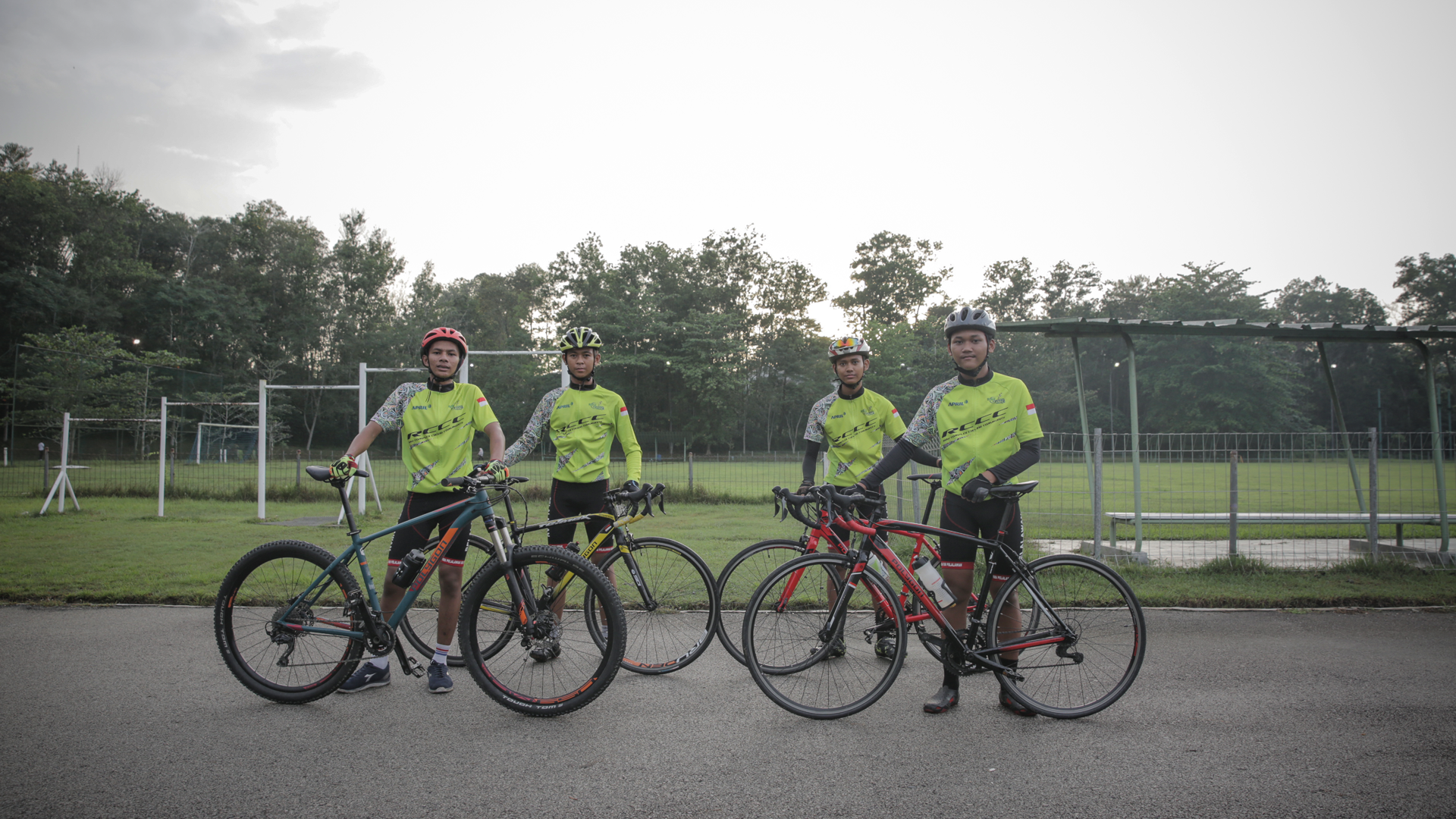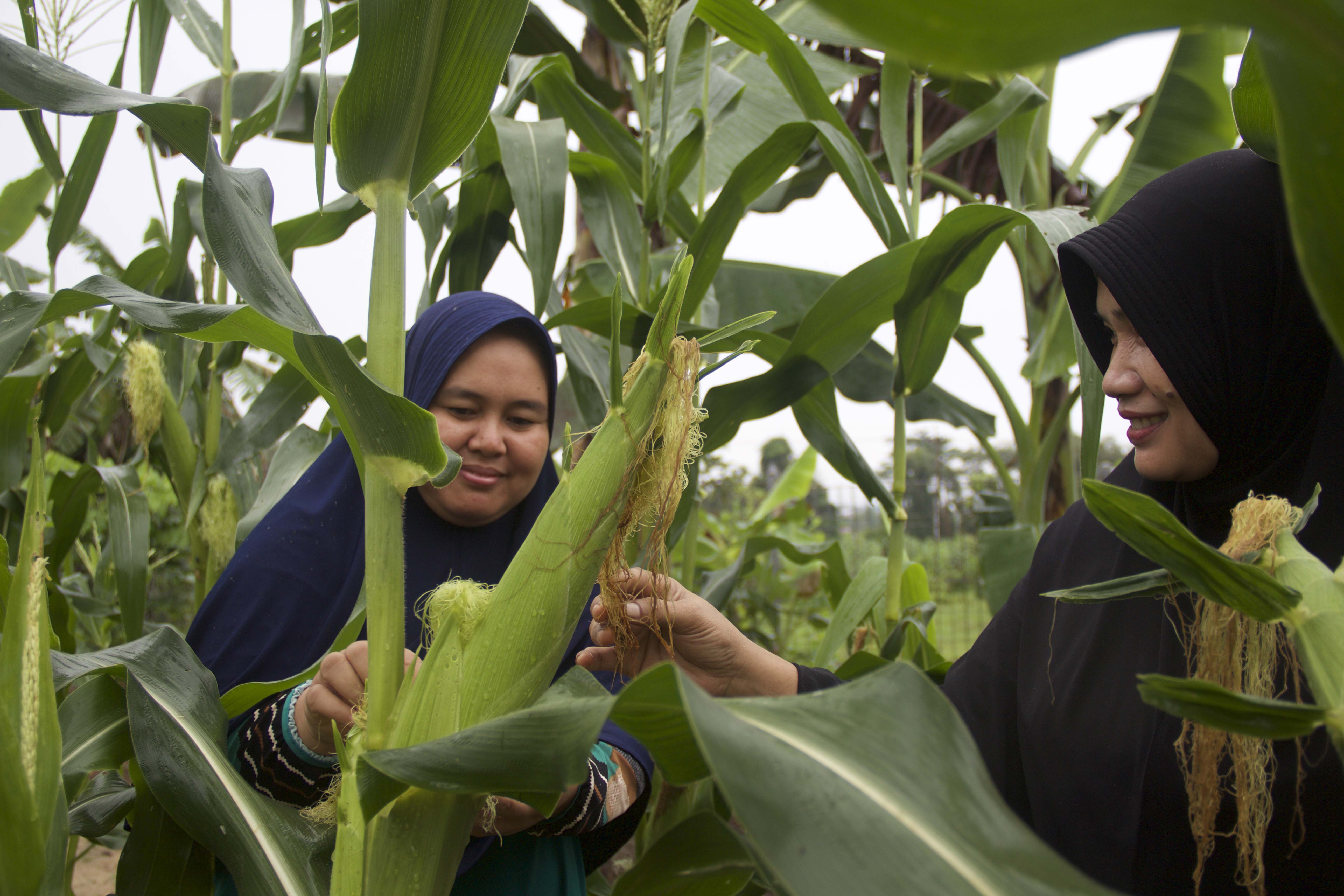- Details
Is it true that what we eat affects climate change? It seems odd, but the answer is yes.
It may come as a surprise to most people that food production, in general, is responsible for one-quarter of the world’s greenhouse gas emissions. Consequently, one of the most effective ways to reduce this is by adopting a sustainable lifestyle that aims toward reducing environmental impacts generated by the food we eat, such as eating local foods — which is known to reduce our carbon footprint by up to seven percent.
At the core of this principle is a series of actions in which we choose and celebrate the different flavors of Indonesia’s many regions — an amalgamation of our collective taste buds and traditions. More than that, “eating local” also reduces travel and lets us frequent local establishments, which in turn helps boost our local economy.
- Details
Fighting stereotypes around the role of women in the workplace is nothing new for Rita Alim, Deputy Director of External Relations at APRIL Group.
Prior to her appointment to a leadership position in the Indonesian pulp and paper industry, she had been working in male-dominated environments since the beginning of her career.

Rita first began to challenge traditional norms when she enrolled at a private university in Surabaya to study Information Technology. At the time, very few women majored in technology. However, Rita did not see that as a problem. Instead, she enjoyed an active university life. She was even appointed assistant lecturer of the laboratory at the university.
“I always believe that being smart is not enough. We also need to adapt to our social and cultural environment to achieve our targets,” according to Rita.
She maintained this attitude throughout her career. After earning her bachelor’s degree, Rita proved again that women could break free of gender stereotypes in thee workplace. She became the first woman to work as a sales engineer at an industrial coatings and chemicals company in East Java.
The male dominated environment simply strengthened Rita’s determination to enhance her skills. Rita, a pilates and yoga enthusiast, received a scholarship to pursue her postgraduate degree in Marketing at Northumbria University in the UK.
She then proved again that women and men are equal in the workplace when she secured an internship with the police force in the Newcastle. During this time, Rita worked mostly with male colleagues to conduct research on the police’s efforts to engage with ethnic minorities.
Her experience has shaped Rita’s career. After 11 years at APRIL, Rita is now a strong female leader whose team includes many male employees.
Currently, Rita is responsible for maintaining strategic external relationships, particularly with the local government ministries concerning licensing. Furthermore, Rita is actively involved with the Indonesian Pulp and Paper Association (APKI) where she serves as Sustainability and Environmental Director.
Rita said she could not have achieved what she has without the full backing of an employer that supports the effective participation of women in the workforce and equal opportunities for employee development. “APRIL supports its employees and also gives room for female employees to lead in strategic positions,” she said.
The theme of this year’s International Women’s Day is #choosetochallenge, and Rita encourages women to continue fighting for equal rights and to continue growing without losing their identity.
“The key is to never lose faith and confidence. Women belong in the leadership positions – we just need to be confident and maintain the ambition to achieve our dreams. Happy International Women’s Day!”
- Details
Here's why Indonesia should embrace the current bicycle boom for a green, sustainable future.
Amid the pandemic, people have been finding ways to adapt to new habits. From increasing our fitness level to nourishing our bodies with wholesome food, health has become the priority in our day-to-day life. We learned that there is no better way to strengthen our immune system than to exercise regularly, eat well, get enough sleep, and lead a balanced lifestyle.

The awareness to be more health-conscious and eco-friendly has become a dogma of sorts among urban communities in Indonesia since the mid-2010s, thanks to relentless health and sustainable campaigns led by both for profit and non-profit organizations.
- Details
2020 was a challenging year, but not all that happened was bad. There was plenty of good news from Indonesia that provided a dose of optimism.
Here are some of the good news items:
First, although world economic growth was under pressure, startup companies in Indonesia were able to enjoy impressive business growth! By the end of 2020, six startups established by the nation's young entrepreneurs, Gojek, Traveloka, Tokopedia, Bukalapak, OVO, and JD.id, recorded amazing valuations of more than US$1 billion each. In fact, Indonesia has more unicorns than any other country in Southeast Asia.
Second, although international tourism declined, Bali remained a favorite destination in Asia among foreign tourists. Travel platform TripAdvisor ranked Bali in first place in the list of 25 most popular tourist destinations in Asia. Bali was also considered a more romantic honeymoon destination than Hawaii, the Maldives, Thailand and others. Cool!




